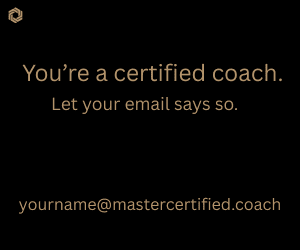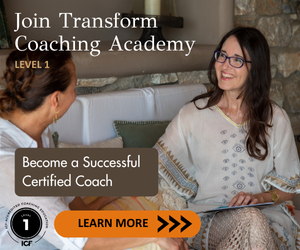As work is poised to become largely remote, coaching too needs to evolve. In an asynchronous work environment, employees are distributed across varied time zones and their in- person interactions are minimal.
Hence, the practice of “coaching-by-appointment” needs to shift to “coaching-on-demand.” To accomplish this, the coaching capacity and capability of an organization must be distributed across teams and time zones, instead of being concentrated only within the HR department.
Of course, the critical success factor would still be leadership buy-in and recognition of the business case of coaching in terms of employee engagement, productivity and retention. Creating a psychologically safe workplace would remain the endgame of coaching.
Coaching’s future playbook would involve specific coaching competencies spread across different mediums. Here is what this would look like.
1. Virtual Coaching for Emotional Resilience
The emotional check-in that a coach provides can be a simulated digitally. This would be a virtual coach chat interface, powered by a personalized AI (Artificial Intelligence) assistant. It would conduct a daily micro-session of virtual coaching lasting up to 5 minutes.
At the start of each workday, when an employee logs in to the enterprise software, the virtual coach would greet them. Similar to an agile daily stand-up meeting, it would ask the employee up to three simple questions.
The employee would interact with the virtual coach using voice or text. Using NLP (Natural Language Processing), the virtual coach would decipher the employee’s feelings. If needed, it would probe further into the emotional state of the employee, and provide online resources for emotional resilience.
The aggregated data from each geographical area would be available to the team leader, who can decide if employees in a particular area need further emotional support.
2. Self Coaching for Reflection
The self-discovery that a coach stimulates can be owned by the employee themselves. Journaling can enable employees to dissociate themselves from any toxic thoughts and see them objectively on paper. Each weekly journaling session can last up to 15 minutes.
At the end of every work week, an employee would receive an email with questions for self inquiry and prompts for creativity. These questions would be designed to help the employee discover the unique meaning they find in their work and connect them with their internal motivation for the current project.
The email would be accompanied by guidelines on how to answer with the purpose of generating useful insights. The employee can log the answers in a notebook or a private online blog. This information can also act as a ready-reckoner during the monthly, quarterly or annual appraisal with the team leader.
3. Peer Coaching for Sounding Board
Active listening done by a coach can be embedded in the employee’s relations with their colleagues. An online course can prepare an employee to learn the basics of active listening. They can then be paired with a colleague in the same time zone, with whom they can practice this skill on an ongoing basis.
In a peer coaching session, employees act as sounding boards for each other. They can vent to each other about their personal and professional challenges. They can have a voice call twice a month, with each session lasting up to 30 minutes.
Peer coaching can be counted as a KPI (Key Performance Indicator) for measuring contribution to the team’s performance. It also provides an informal forum for socializing, replicating the water cooler conversations that were once part of a physical office.
4. Leadership Coaching for Accountability
Coaching for accountability is best handled by a certified leadership coach. An in-house coach or a coach hired by the organization can have a monthly or quarterly session with each employee to ensure that they are on track.
In this one-to-one session, the employee focuses on a long-term goal related to a key leadership area identified by them and their team leader. This session can happen over a video call once a month or a quarter, with each session lasting from 60 to 90 minutes.
Leadership coaching is a great opportunity for formulating the “big picture” of one’s career. It also helps the team leader identify and groom employees who are ready to step up for greater challenges and responsibilities.
By providing a combination of human and digital coaching resources, organizations can help unlock the wellbeing and potential of their employees that had been impacted by lockdowns.
When coaching is available on demand, a geographically distant employee no longer feels isolated and lonely. Even while working remotely, they feel emotional intimacy and a connection to their purpose. That’s when work truly feels like home.
Disclaimer
The views and opinions expressed in guest posts featured on this blog are those of the author and do not necessarily reflect the opinions and views of the International Coach Federation (ICF). The publication of a guest post on the ICF Blog does not equate to an ICF endorsement or guarantee of the products or services provided by the author.
Additionally, for the purpose of full disclosure and as a disclaimer of liability, this content was possibly generated using the assistance of an AI program. Its contents, either in whole or in part, have been reviewed and revised by a human. Nevertheless, the reader/user is responsible for verifying the information presented and should not rely upon this article or post as providing any specific professional advice or counsel. Its contents are provided “as is,” and ICF makes no representations or warranties as to its accuracy or completeness and to the fullest extent permitted by applicable law specifically disclaims any and all liability for any damages or injuries resulting from use of or reliance thereupon.
Authors
Post Type
Blog
Audience Type
Coach Educators, Experienced Coaches, External Coaches, ICF Chapter Leaders, Internal Coaches, New Coaches, Professional Coaches, Team and Group Coaches
Topic
Advance Your Coaching Career, Discover - Your Coaching Career
Related Posts
The Power of Active Listening in Meaningful Coaching: Why Active Listening is the Most Essential Coaching Competency
Of all the foundational coaching competencies identified by the International Coaching Federation…
Allyship in Action: Coaching as a Catalyst for Change
Allyship is often framed as a value or an intention. In practice,…
Grace Under Fire: Building Stress Resilience for Coaches and High Achievers
There’s a unique kind of pressure that lives at the intersection of…







